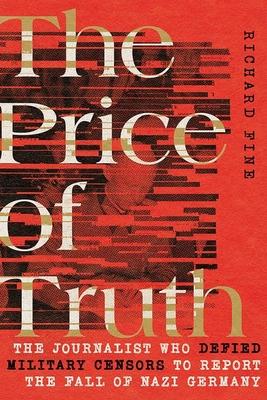In The Price of Truth, Richard Fine recounts the intense drama surrounding the German surrender at the end of World War II and the veteran Associated Press journalist Edward Kennedy's controversial scoop.
On May 7, 1945, Kennedy bypassed military censorship to be the first to break the news of the Nazi surrender executed in Reims, France. Both the practice and the public perception of wartime reporting would never be the same. While, at the behest of Soviet leaders, Allied authorities prohibited release of the story, Kennedy stuck to his journalistic principles and refused to manage information he believed the world had a right to know. No action by an American correspondent during the war proved more controversial.
The Paris press corps was furious at what it took to be Kennedy's unethical betrayal; military authorities threatened court-martial before expelling him from Europe. Kennedy defended himself, insisting the news was being withheld for suspect political reasons unrelated to military security. After prolonged national debate, when the dust settled, Kennedy's career was in ruins.
This story of Kennedy's surrender dispatch and the meddling by Allied Command, which was already being called a fiasco in May 1945, revises what we know about media-military relations. Discarding "Good War" nostalgia, Fine challenges the accepted view that relations between the media and the military were amicable during World War II and only later ran off the rails during the Vietnam War. The Price of Truth reveals one of the earliest chapters of tension between reporters committed to informing the public and generals tasked with managing a war.
